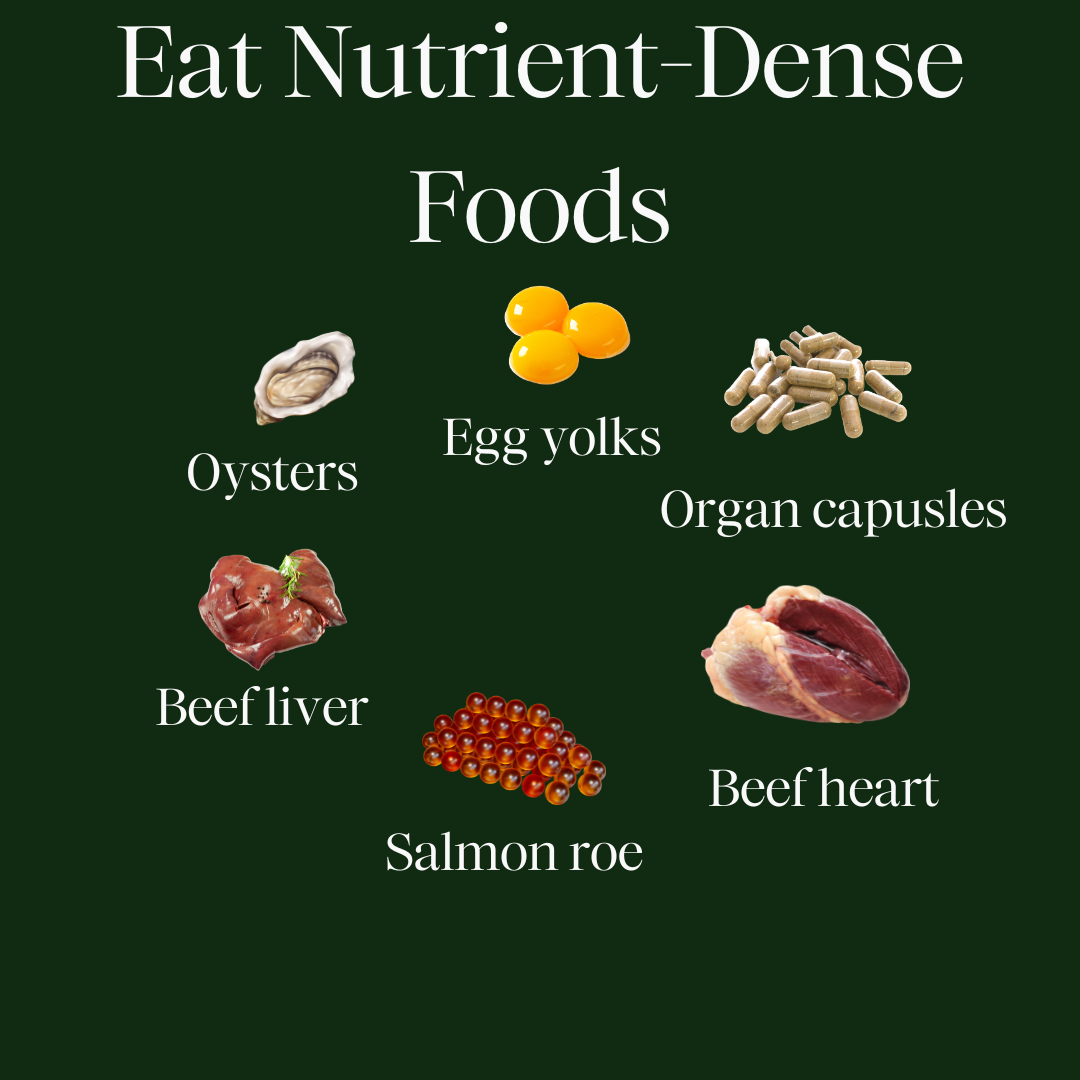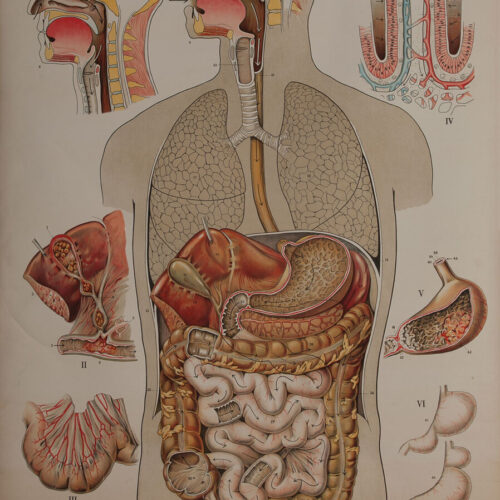We are facing a fertility crisis. Conditions like PCOS, fibroids, endometriosis, PID, and other reproductive issues are on the rise. Most of these issues are accompanied by estrogen dominance and low progesterone. Optimizing your ovaries will not only increase your chances of getting pregnant but will also support your reproductive health as you age. Often women in their late 30s and early 40s that wish to conceive aren’t sure about the quality of their eggs and if they will yield conception. You can absolutely have a baby in your later years, it’s all about knowing how to optimize ovarian function.
Boosting fertility is one of the most important things you can do for your reproductive system and this can be done at any age. You will have better menstrual cycles and overall health once you learn to nourish your ovaries. I believe a woman’s reproductive health reflects her overall well-being. Personally I found that when my menstrual cycle was painful and I felt absolutely terrible, it was accompanied by other health problems. It wasn’t until I fully healed my cycle that I realized how tied my overall health was to my fertility and reproductive health. It was a mind-opening experience, to say the least.
The following are simple ways to help optimize ovarian and reproductive health. I do these every day and they have undoubtedly changed my overall health.
Eat Nutrient-Dense Foods.
Nutrient-dense foods will help optimize your ovaries by supplying your body with bioavailable micronutrients. Prenatal, pregnancy and postpartum nourishment are all important for a healthy mother.
Supplements are great but the best way to get vitamins and minerals is directly from the food source. Most foods don’t have adequate nutrition so consciously adding nutrient-dense foods is the best way to go.

Nutrient deficiency plays a major role in postpartum depression. Studies have found that women with postpartum depression often suffer from nutritional deficiencies like iron, b vitamins, magnesium, zinc, selenium, vitamin D, and essential fatty acids. Think about it, your body is creating a human being inside of you, and without proper nutrition, that baby will take all your nutrients to grow. A baby can leech your body of nutrients, I’ve heard stories of women whose teeth have fallen out during pregnancy. A mother can be left depleted, and recovery is not easy, especially if your lifestyle hasn’t been the most nutrient-dense. Furthermore, it’s possible to not even have enough nutrients for your baby to be healthy in the first place. It should go without saying, but all too often in this fast-paced consumer culture separates from ancestral practices a woman can harm herself and her child through a lack of proper nutrition,
Prevent postpartum depression by making sure you’re getting adequate amounts of these foods throughout your life and pregnancy.
Beef heart has the highest amount of CoQ10 then any other food. You can read more about the Benefits Of Beef Heart in my article. Let's discuss CoQ10!


CoQ10.
CoQ10 is an antioxidant made in the body that converts food into energy and protects DNA from damage by fighting free radicals. As you age your body produces less CoQ10, and low levels of this antioxidant are associated with many diseases like neurological conditions, cardiac conditions, and organ dysfunction.
This powerhouse antioxidant has demonstrated its ability to improve ovarian response, embryo quality, and egg quantity and quality. This was seen in both younger and older women. CoQ10 is the best antioxidant for optimizing ovarian health and fertility.
Suggested use between 200mg-600mg/day.

DHEA.
Dehydroepiandrosterone (DHEA) is a hormone made in the adrenal glands and in the brain that helps produce other sex hormones. It is one of the most abundant hormones in the body. DHEA starts decreasing production around the age of 30 and by the age of 75, the body is making around 10% of DHEA.
DHEA can boost libido in both men and women and help balance sex hormones. DHEA improves ovarian function and increases pregnancy rates while lowering miscarriage rates. It improves ovarian reserve and promotes healthy follicle growth.
If you are over the age of 30, this could be a great way to boost fertility and rapidly increase your chances of pregnancy. This one you'll definitely want to do a hormone panel before taking.
DHEA Supplement:

Myo-Inositol.
Inositol, often referred to as vitamin B8, is not a real vitamin. It is a sugar made in the body and in foods that helps regulate the body’s insulin. It also helps with mood and cognition. Inositol has many benefits including mental health disorders, metabolic disorders, and fertility.
Inositol restores fertility, ovulation, and menstruation. It improves the cells in the ovaries and assists in the very earliest stages of pregnancy, embryogenesis. Inositol can also prevent neonatal defects and improve embryo development. Taken during pregnancy, it can prevent gestational diabetes which can lead to miscarriages and stillborns and can reduce the possibility of neural tube defects. In women undergoing ovulation induction treatment like IVF inositol improved the pregnancy rate by 95%.
Optimize your ovaries with inositol by taking 2000mg/2xday.
Protip: I add this to my morning coffee every day.
Inositol Supplement:

Royal Jelly.
Royal jelly is a nutrient-dense secretion made by nurse bees for larvae and queen bees. It is made up of mostly amino acids, vitamins, proteins, and minerals with high water content. It has an incredibly dense profile and I’d like to say it’s very close to being a natural multivitamin. While it is a powerful resource for fertility, It is important to note that royal jelly is not to be used during pregnancy.
Though there aren’t a lot of studies on humans it seems clear from many different animal studies that royal jelly boosts fertility by optimizing ovarian follicle growth, increasing both progesterone and estrogen levels, and increasing the number of mature follicles.
Royal jelly boosts healthy natural estrogen, but it’s important to realize how easy it is to accumulate toxic forms of estrogen or xenoestrogen. This will help the toxic estrogen find the least harmful pathway for elimination. Hormone Advantage listed below will help with this process. Take these two together to prevent estrogen accumulation.
*Royal Jelly should not be consumed once pregnancy occurs.
While on the topic of estrogen, many women suffer from estrogen dominance. Symptoms include heavy periods, excessive cramping, and large blood clots during menstruation. To learn more, visit my article Step 7: Estrogen & Melasma, where I focus on how to support estrogen detoxing.
Skip taking royal jelly on bleed days.
Royal Jelly & DIM Supplements:


Rhodiola Rosea.
Rhodiola is an adaptogen also known as golden root. Its first recorded medicinal use was in the De Materia Medica by Greek physician Dioscoridase, written in 77CE. In Siberia, Rhodiola was given to married couples as a gift to promote fertility and inspire the birth of healthy babies.
Rhodiola has been used in traditional medicine in many countries like Scandinavia, Russia, Sweden, Norway, France, Germany, the former Soviet Union, and Iceland. It was used by the Vikings for stamina and has been shown to be helpful for conditions like depression and anxiety.
Rhodiola has been shown to reverse primary and secondary ovarian failure and restore menstruation in women with amenorrhea. In animal studies, it has also been shown to improve stress-induced damage to ovarian tissue. Rhodiola is also great for male sexuality, it improves erectile dysfunction and pre-ejaculation while boosting stamina.
Rhodiola is probably the single most important adaptogen in the adaptogen kingdom. It really doesn’t get the attention it deserves. To read more about Rhodiola’s numerous benefits check out this article. 7 Science-Backed Health Benefits of Rhodiola.
Rhodiola Rosea Supplement:

Conclusion.
Reproductive health is deeply connected to overall health so optimizing your ovaries is important for all women, even if you aren’t trying to get pregnant.Please consider integrating any or all of the items above to boost fertility and improve general well-being.
Check out my articles on Defining Melasma, one of the hardest skin conditions to reverse.
Resources:
https://www.ncbi.nlm.nih.gov/pmc/articles/PMC8227031/
https://www.ncbi.nlm.nih.gov/pmc/articles/PMC5641457/
https://pubmed.ncbi.nlm.nih.gov/29587861/
https://www.ncbi.nlm.nih.gov/pmc/articles/PMC4568976/
https://pubmed.ncbi.nlm.nih.gov/30202998/
https://www.sciencedirect.com/topics/pharmacology-toxicology-and-pharmaceutical-science/rhodiola
https://www.sciencedaily.com/releases/2011/02/110201122223.htm
https://www.ncbi.nlm.nih.gov/pmc/articles/PMC5728865/
https://www.ncbi.nlm.nih.gov/pmc/articles/PMC3112409/



Leave a Reply